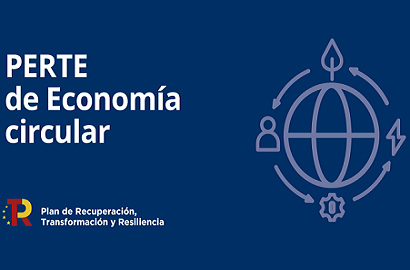Circular economy PERTE targets sustainable production system

The council of ministers approved its startup with a budget of 492 million euros
The council of ministers has approved the startup of the Circular Economy Strategic Project for Economic Recovery and Transformation (Proyecto Estratégico para la Recuperación y Transformación Económica, PERTE), which is an initiative of the Ministry for Ecological Transition and the Demographic Challenge (Ministerio para la Transición Ecológica y el Reto Demográfico, Miteco). Its aim is to accelerate a transition towards a production system that is more efficient and sustainable in the use of materials.
The new PERTE is framed within the Spanish circular economy strategy that, from now until 2030, aspires to position our country as an international reference for waste management, recycling and reuse. It will at the same time contribute to boosting competitiveness in industrial sectors and companies and will give Spain greater strategic autonomy.
Public and private investment
The circular economy project includes a budget of 492 million euros in subsidies, which will be supplemented by more than 1.2 billion euros that the initiative will stimulate from public and private investment until 2026. The subsidies will be distributed amongst 18 instruments divided into two lines of action. Actions in key industries will have a budget of 300 million euros, and the remaining 192 million are reserved for cross-cutting actions.
The first line of action seeks to introduce circular frameworks, mainly in three industries where the challenge of sustainability is particularly important and which have great expectations for growth in our country: textiles/fashion, plastics and renewable energy. The subsidies, with 100 million euros for each of the industries, will give them access to technology and reduce their financial needs in facing up to the necessary processes.
The second line of action, aimed at production processes, will seek to improve competitiveness and innovation in the industrial fabric, with initiatives to reduce the consumption of virgin raw materials, ecodesign, waste management and digitisation. It also envisages generating synergies with other PERTEs.
Strategic autonomy in Spain
Maintaining materials and resources in the production cycle for the longest time possible means reducing waste, and by recovering all the parts that continue to be useful it adds value to those areas becoming obsolete.,. Teresa Ribera, the vice-president and minister for Ecological Transition and the Demographic Challenge, stressed that “this PERTE will decisively contribute to the government’s efforts to strengthen Spain’s strategic autonomy with regard to the availability of raw materials and reducing our vulnerability to global crises.”
The three main points addressed by the new PERTE aspire to change a linear growth economic model that Ribera classifies as unsustainable. Ecodesign will therefore be encouraged to obtain longer lasting, repairable products, waste management will be improved at factories that increase the reuse, recycling and reincorporation of raw materials recovered and, in the third place, digitisation linked to both aims will be boosted in such a way that competitiveness and innovation will be enhanced in the industrial fabric.
Around 70,000 jobs
For example, in the battery industry, treatment facilities could be funded to facilitate the recovery of valuable materials like lithium and lithium-ion. This kind of factory, which does not currently exist in Spain, could also develop systems giving a second life to EV batteries and that could be used for other purposes.
According to Miteco, the application of circular principles to the entire European Union economy would increase the GDP of the EU by 0.5% up to 2030, as well as creating around 700,000 new jobs, at least 10% of which could be in Spain.
Photo: Miteco




